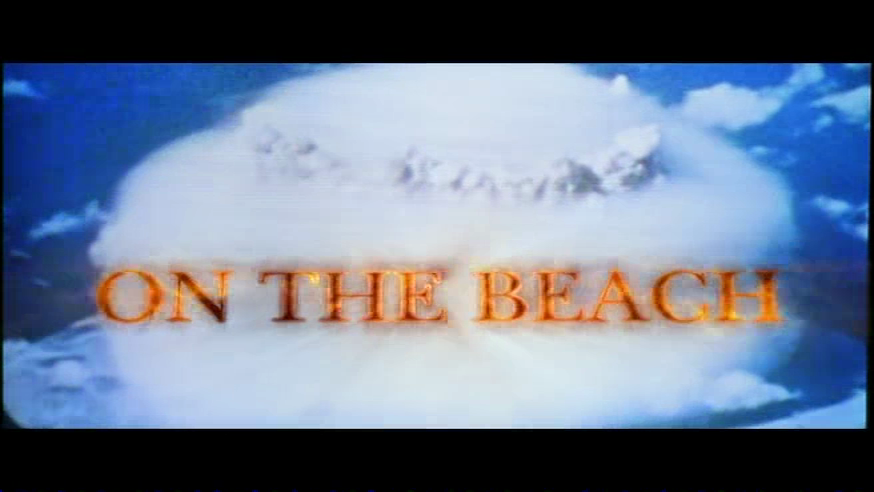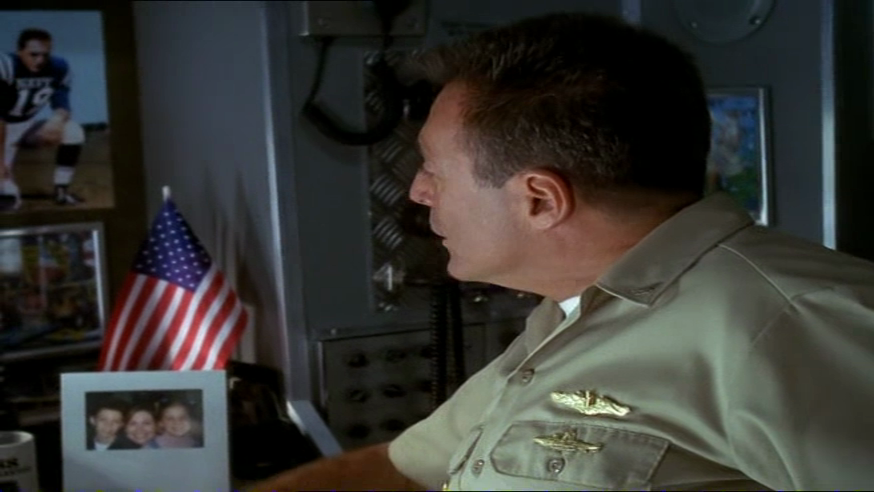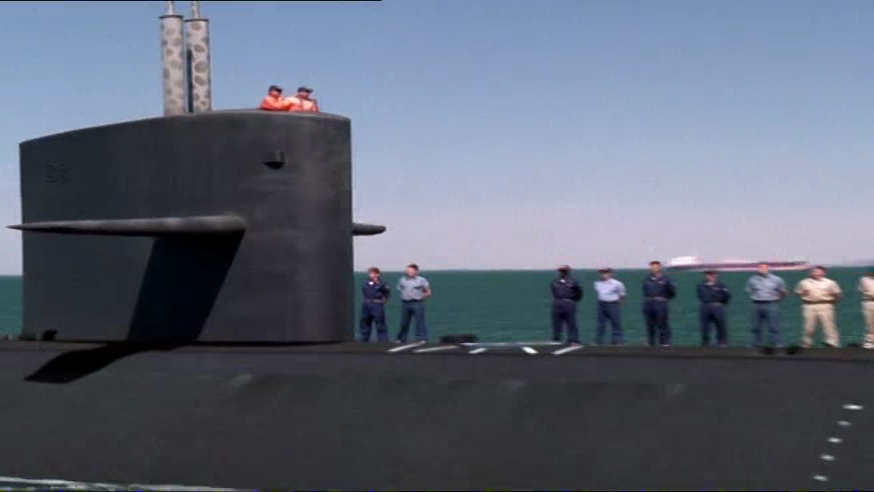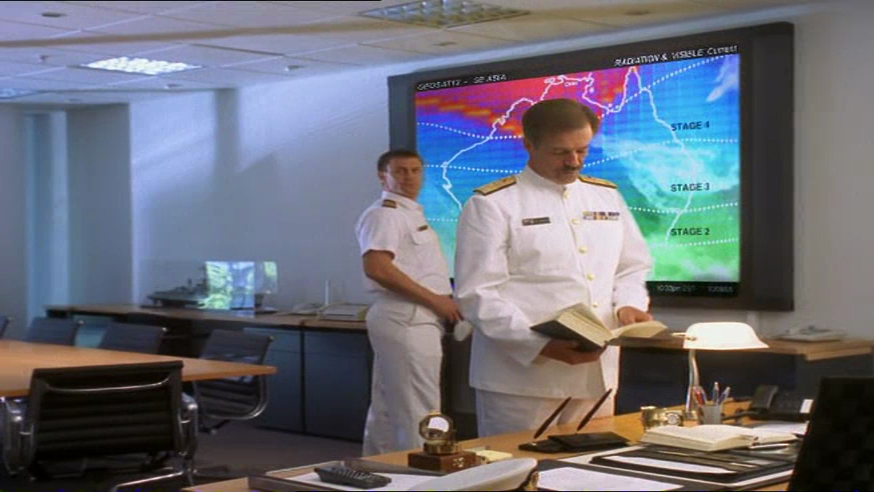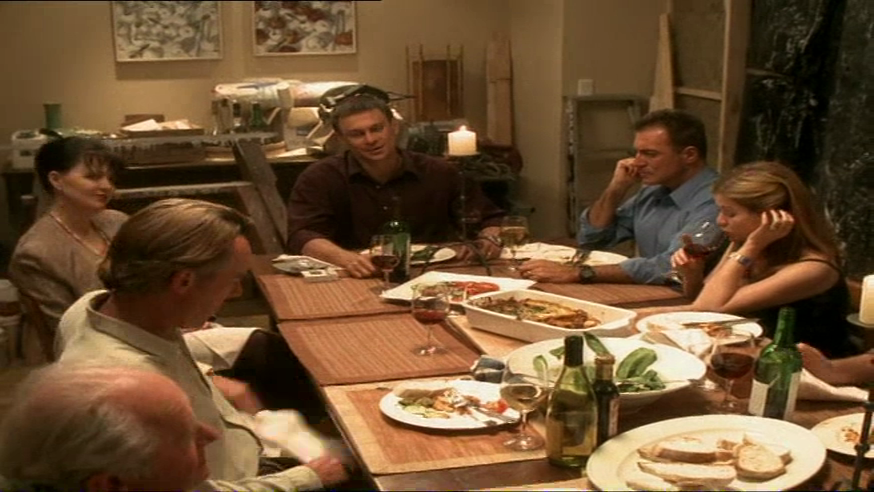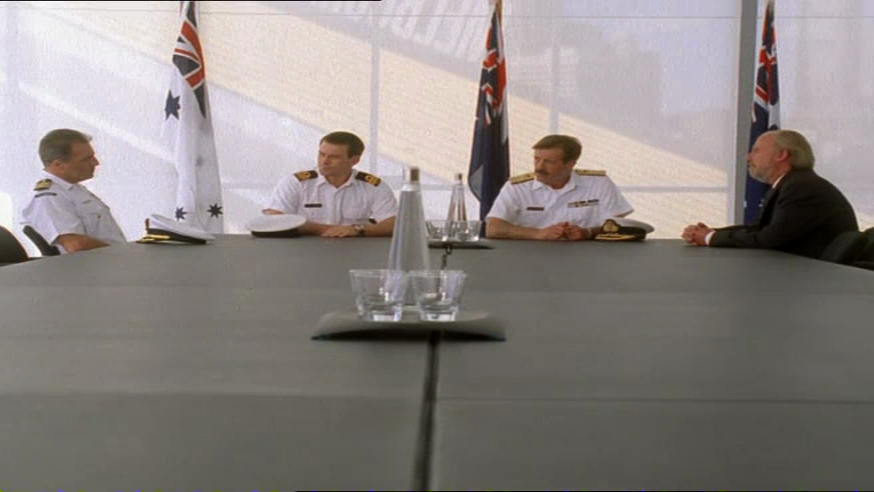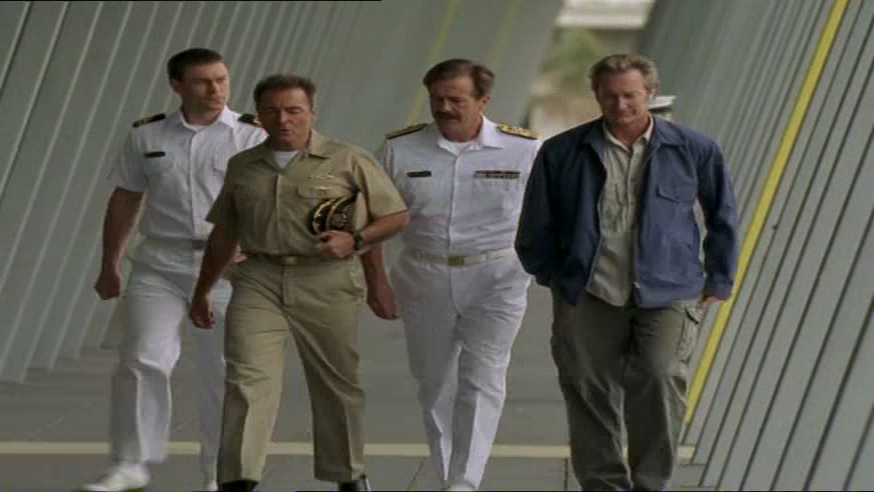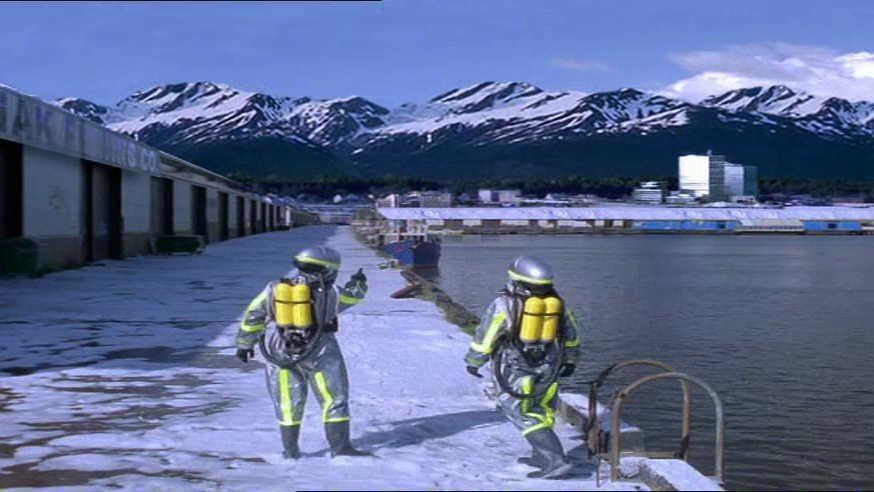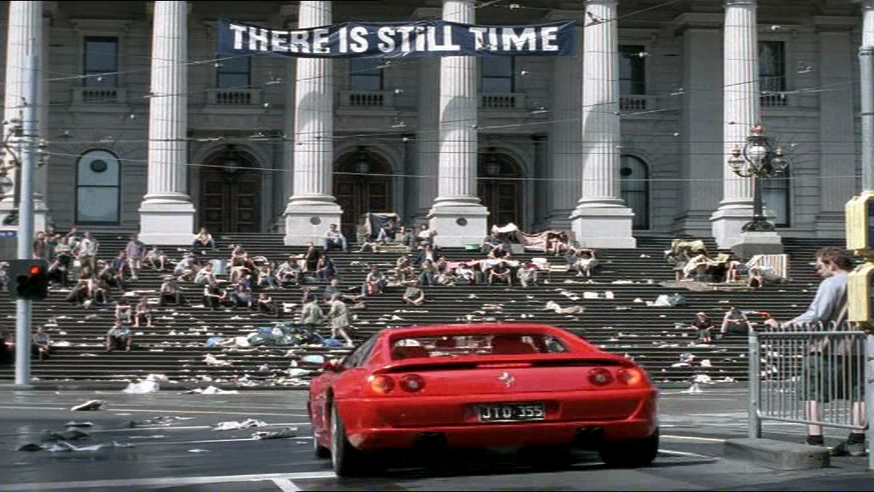-
#343 – On The Beach (2000)
On the Beach (2000)
Film review # 343
Director: Russell Mulcahy
SYNOPSIS: After nuclear war renders the northern hemisphere uninhabitable due to lethal radiation, Australia becomes the last place on Earth where life is sustainable. However, the radiation is slowly moving southwards, meaning there is a few months left at most for everyone. Captain Dwight Towers of the USS Charlston, a U.S. submarine that is been beneath the waves to avoid radiation, is called to Australia to take part in a mission to return to the northern hemisphere to test a theory that there may be areas where it is safe to live…
THOUGHTS/ANALYSIS: On the Beach is a 2000 TV miniseries based on the 1959 film of the same name, which in turn was based on a 1957 novel of the same name. It begins with a series of news reports that provide some backstory on what has happened: a nuclear war between the U.S.and China broke out which lead to the northern hemisphere becoming uninhabitable due to the lethal radiation.This has lead to people moving en masse to Australia, which has avoided the radiation thus far. However, the radiation will eventually blow southward in a matter of months, meaning that nowhere will be safe. Captain Dwight Towers, the commander of the U.S. submarine USS Charlston, is docking the sub in Melbourne, having avoided the radiation since their sub has been underwater. Towers is given a new mission to return to the northern hemisphere and check on the radiation levels based on a new – albeit optimistic – theory that the radiation may have subsided. He is joined by Dr. Julian Osborne, a scientist who thinks the whole plan is a waste of time, and Australian navy officer Peter Holmes. Peter invites Dwight to his home before they depart, and the majority of the opening part of the film focuses on establishing the characters of Dwight, Peter and his family, their relationships to one another, and their varying attitude towards the oncoming end of the world. The human drama of Dwight’s loss of his family, the love triangle between Moira (Peter’s sister-in-law), Julian and Dwight, and Peter’s family is a major focus of the film, and it takes a long time to build up and get the viewers familiar with them so you can invest in their emotions and attitudes. It is very slow-paced, and can be difficult to pay attention to at length because of it.
The story offers a small glimmer of hope in the quest to venture to the northern hemisphere and find a place where the radiation has fallen enough so that people can live again. They also find a signal being transmitted from Anchorage, Alaska, so that is where they head. The film builds up this hope as the crew of the submarine slowly make their way to the signal’s origins in hope of finding survivors, but when it arrives all of that hope is dashed when they find lethal radiation there. The Captain and his first officer venture onto the shore in radiation suits to try and find the origin of the signal, but find it is a broadcast that is transmitted automatically by a laptop that is activated by a solar power cell as the sun shines on it every day. This is quite a come down, as this was more or less the last hope for humanity, and the rest of the film is a slow coming to terms with the inevitable death of everyone. Although the pacing is slow, it manages to create a bit of an emotional rollercoaster, as specific scenes raise hopes, and other scenes bring everything crashing down hard. It’s definitely a strength of the film to take the viewer on this ride, and is really down to the time it takes to invest in these characters.
The film does a good job of painting a depressingly fatalistic picture: the crowds look dull and bleak, and what little hope there is at the start of the film is slowly but ultimately crushed. The last portion of the film really goes into full depressing mode, as all hope is exhausted, and everyone has to accept the fact that they are going to die as radiation sickness begins to affect everyone. After building up all the character’s and their relationships, the film uses that investment to really give the film a huge impact. Each character gets to choose how they want to die; and it’s not much of a consolation, but that’s really all there is at this point. Peter and his family use a euthanising drug that has been distributed by the government so they can all die together, Julian drives his sports car around a race track, and deliberately crashes it, and the crew of the USS Charlston set sail back to their home port of San Francisco, knowing they will not make it, but wanting to die at sea. Moira heads to the beach alone after Dwight decided to go with his crew in the submarine, but it turns out he changed his mind at the last minute and the two share some wine overlooking the sea as the end will inevitably set in. Like I say, it’s all very emotional and depressing, and I don’t recommend watching it if you’re feeling down, because it certainly won’t help. It’s an emotionally exhausting experience but I suppose that makes it successful in getting the viewer invested in the characters. The setting of a post-apocalyptic Australia is rendered pretty well, with general order barely holding, and the effects are pretty decent too. It is a TV movie so it’s not going to be overly special, and the acting is sometimes a little off, but nothing too severe. The music adds to the dramatic tone of certain scenes too, and overall the production is well considered and decently executed. I would recommend watching it in three parts like the original miniseries, as the full three-hour experience will be draining and an emotional endurance, but it is perfectly watchable. There’s nothing particularly memorable about the characters themselves, but the way it builds their relationship to one another and the tone of its key scenes still allows the viewer to appreciate their human sensibilities and their varying attitude to the inevitable.
